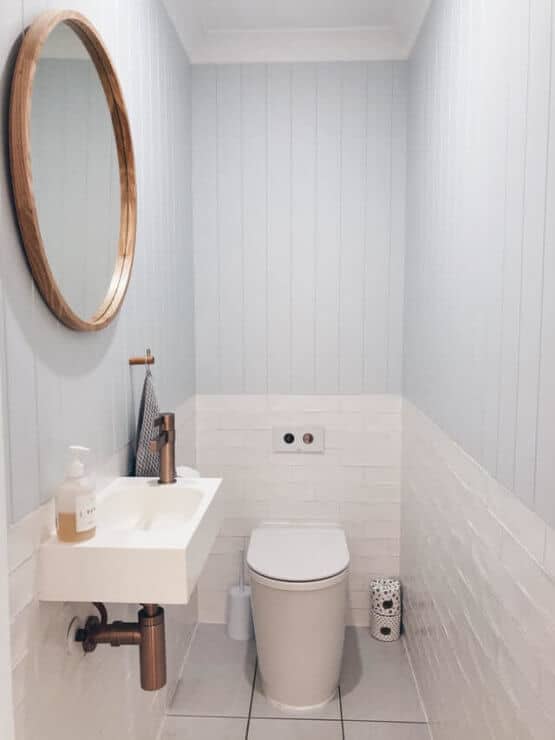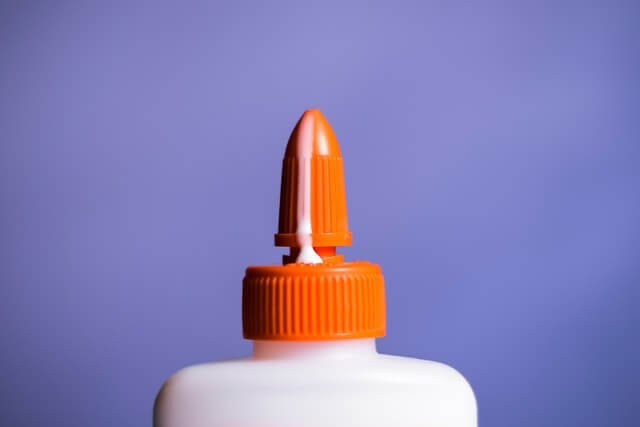The daily shower should be a pleasant experience for everyone. We all like that refreshing sensation we experience after a warm shower and using a nice body wash. Unfortunately, there are things that can ruin that good feeling, such as a slow shower drain.
There is nothing worse than staying with your ankles in a pool of lukewarm water after finishing the morning shower.
Have you ever dealt with a slow shower drain?

In this post we will give some practical advice on how to fix a slow shower drain. We will also look into the main causes of this problem, which can be very diverse. Don’t hurry to blame it exclusively on family members with long hair!
How can you tell your shower drain is clogged?
Water not draining enough in shower is an obvious sign your drain is clogged. However, there may be other signs that you need to take action and clean the drain:
- Standing water in shower drain
The water will stay a few inches above the drain for a short period of time and eventually drain. This is usually the first sign that a small clog has formed inside the drain.
- Slow shower drain
Have you noticed slow drainage of your shower drain? This means you should perform regular drain cleaning so you prevent large clogs from happening.
- Bad smell emanating from the drain
The waste that gathers inside the drain decomposes and generates unpleasant odors. Some people pour vinegar down the drain to neutralize the smell. However, in many cases you will also need to apply at least one home remedy for slow shower drain.
- Gurgling sound from the drain
Gurgling sounds indicate that air is trapped somewhere in your pipes. Possible causes of this phenomenon are clogs further down the line, problems with the main sewer line, and clogged vents.
- Lots of water above the shower drain
Now this is a warning sign that you need to clean the drain as soon as possible. If you find yourself ankle-deep into a small pond of water after each shower, it’s high time you took some drastic measures.
What can cause a slow shower drain?

Now you know you have a problem, but what has caused it? You may even deal with new shower draining slowly if the pipes are old and not cleaned regularly. Let’s see what could be bothering your otherwise pleasant morning ritual shower:
- Soap scum buildup
Soap itself is not that harmful, but when combined with hair it can cause clogs. Soap makes hair stick to the drain walls more easily.
- Hair
Whether it’s long human hair or dog’s hair, shower drain can get clogged with this ever-present type of waste. Even shorter hair can build up around the drain and prevent water from passing.
Further, hair can become an area for deposits like grime and soap scum. Once the hair gets stuck inside the drain, the clog is not dislodged by water anymore and the matter will get only worse.
- Hard water
Water contains minerals like calcium and iron which will stick to drainage pipes. These minerals are inoffensive for human consumption, in limited quantities, but in time they cause clogging inside drains.
- Mud
Got very dirty while gardening or working in your yard? Or your dog likes to jump into mud ponds after each rain? Remove mud manually before using the shower unless you want to clog your shower drain in no time.
- Foreign objects
Small objects like bottle caps, jewelry, small toys, and product wrapper fragments can reach the shower drain. Soap scum and grime adhere to these objects and aggravate the clogging.
How to prevent water not draining enough in the shower

Usual shower drain clogs can be prevented by taking a few simple measures:
- Use a hair guard
Place a hair guard over the shower drain. The idea is to prevent hair from entering the drain and forming a clog. If not, pick up hair that gathers above the shower drain each time you wash your hair.
- Invest in a water softener
If you live in an area where water has a high mineral content, use a water softener. This way, minerals like calcium and iron will not build up inside pipes anymore.
- Be mindful how you use your shower
The shower drain is not a trash can. Avoid small objects like bottle caps and product wrapper from falling inside the drain. When renovating, cover the drain to prevent debris from entering the shower drain. If you are very muddy, remove the thick layer of dirt from your skin before using the shower.
- Perform regular cleaning
Prevention is better than cure, an old saying goes. A simple method to keep your shower drain clean is pouring very hot water inside it once a month.
Chemical drain cleaners – pros and cons
Chemical drain cleaners are quite controversial. Ads tell you that these cleaners will help you get rid of your frustrating problem. [1]
On the other hand, a quick online search will warn you that these solutions come with some possible disadvantages:
- They can damage your pipes if you use them without precaution;
- They can generate toxic fumes that can affect your health;
- They cause damage to the environment;
- They are dangerous for children and pets.
If you do decide, after all, to use a chemical drain cleaner, take the following precautions:
- Read instructions on the bottle to make sure you can use the product on the type of pipes you have at home;
- Make sure the product is dedicated to shower drains. There are stronger products for septic systems, avoid those;
- If you notice the clog doesn’t disappear, don’t pour another kind on top. You never know what chemical reaction can occur and what its consequences are.
Home remedy for slow shower drain
The first line of defense when it comes to cleaning a slow shower drain is represented by home remedies. They are safe, easy to use, and most times, very effective. [2]
Consider the following fixes before calling a plumber or using dangerous chemicals:
- Enzyme detergents
Pour one cup of enzyme liquid dish soap into the shower drain and let it sit for at least an hour. Flush the drain with very hot water.
- Hot water only
Also recommended as a maintenance method, pouring hot water inside a clogged drain is the cheapest home remedy. Let the water drain out and then pour boiling water inside the drain slowly.
Be careful how you handle hot water, especially when you have kids around the home!
Avoid boiling water if you have regular PVC pipes and use hot water instead. If you have CPVC pipes which can withstand high temperatures, use boiling water without hesitation.
- Vinegar and baking soda
Vinegar and baking soda totally rock your pantry as they can be used to solve a variety of household problems.
These two ingredients can dissolve a clog inside your slow shower drain without generating dangerous substances. Follow these steps:
- Pour one cup of baking soda down the drain;
- Follow with two cups of boiling or hot water;
- Pour another cup of baking soda;
- Now pour a cup of vinegar and let it sit for a few minutes;
- When there is no more sizzling from the baking soda and vinegar combo, pour another cup of hot water.
Using various objects to unclog the shower drain
Use the following methods independently or in combination with the home remedies described above:
- Plunger
Use standing water or put water into the tub in order to use this method. Seal overflow holes with duct if they prevent you from gathering enough water.
Next place the plunger over the drain and plunge several times. Move it up and down until its suction power dislodges the clog.
- Drain sticks
You may have seen this cheap plastic item advertised online, but did you know they can be quite effective? The barbs on the stick catch minor clogs and can solve your slow shower drain in a couple of minutes!
- Snake
This cable also called auger cable or sewer rod has a tip at its end to catch clogs. Be careful how you use it as it can damage pipes!
For this method you will need to remove the strainer part. Keep going with the cable until you fell you have reached the clog. Latch onto the clog by turning the handle clockwise.
Signs of a main line clog

There are serious situations when you cannot solve a slow shower drain yourself and you must call a professional plumber. Signs of warning include:
- You flush the toilet and it begins to back up in your shower drain;
- Water drains slowly or does not drain at all even if you have tried all the methods described above;
- Sinks or toilets overflow when you start the washing machine.
These are signs that wastewater cannot leave your home. Having nowhere to go, it stays up until your entire plumbing system is filled with water. Call a professional plumber immediately if you suspect a serious clog!
So, don’t let a slow shower drain ruin your morning shower ritual! Take action from the first signs of clogging and your plumbing system will stay in good health!

Michael Davis is a heating & plumbing expert who currently works as independent contractor in SC. He also writes for Plumbertip.
For almost 10 years he worked on various plumbing tasks across South Carolina.


